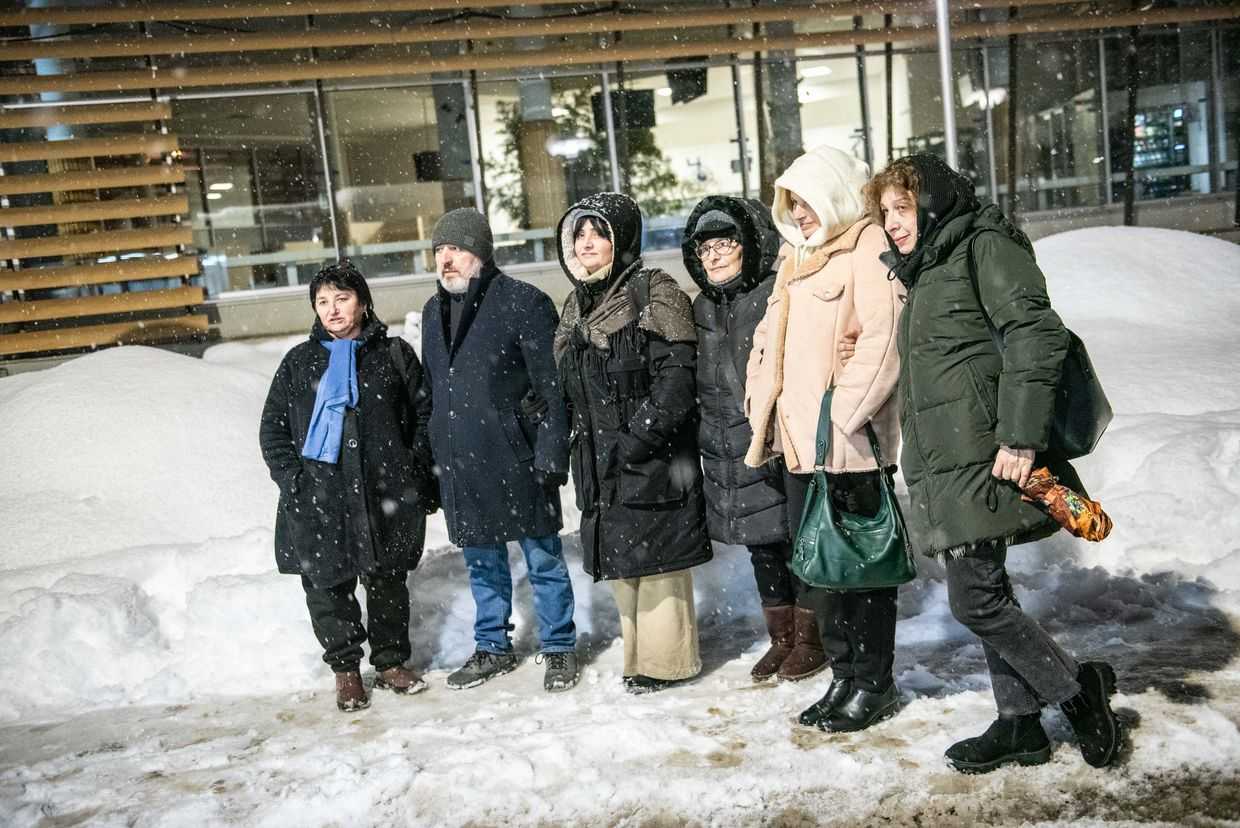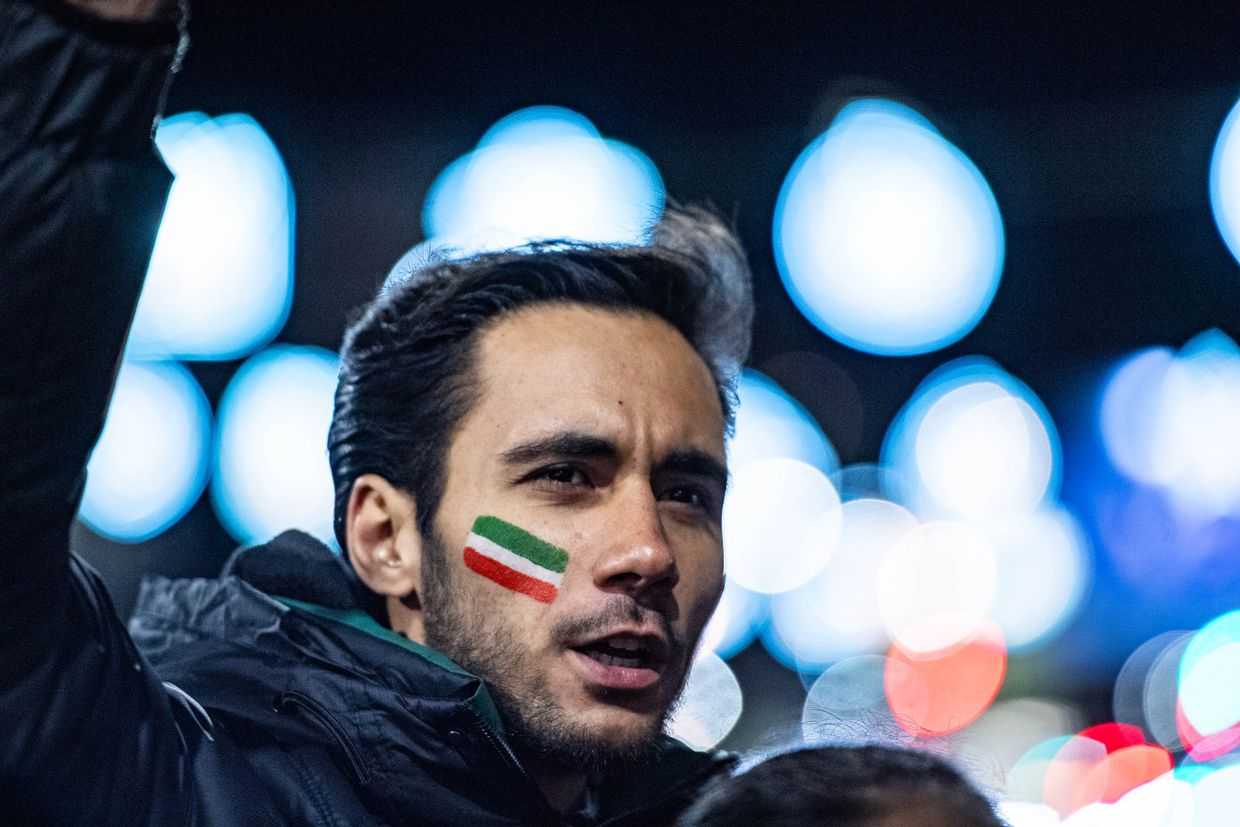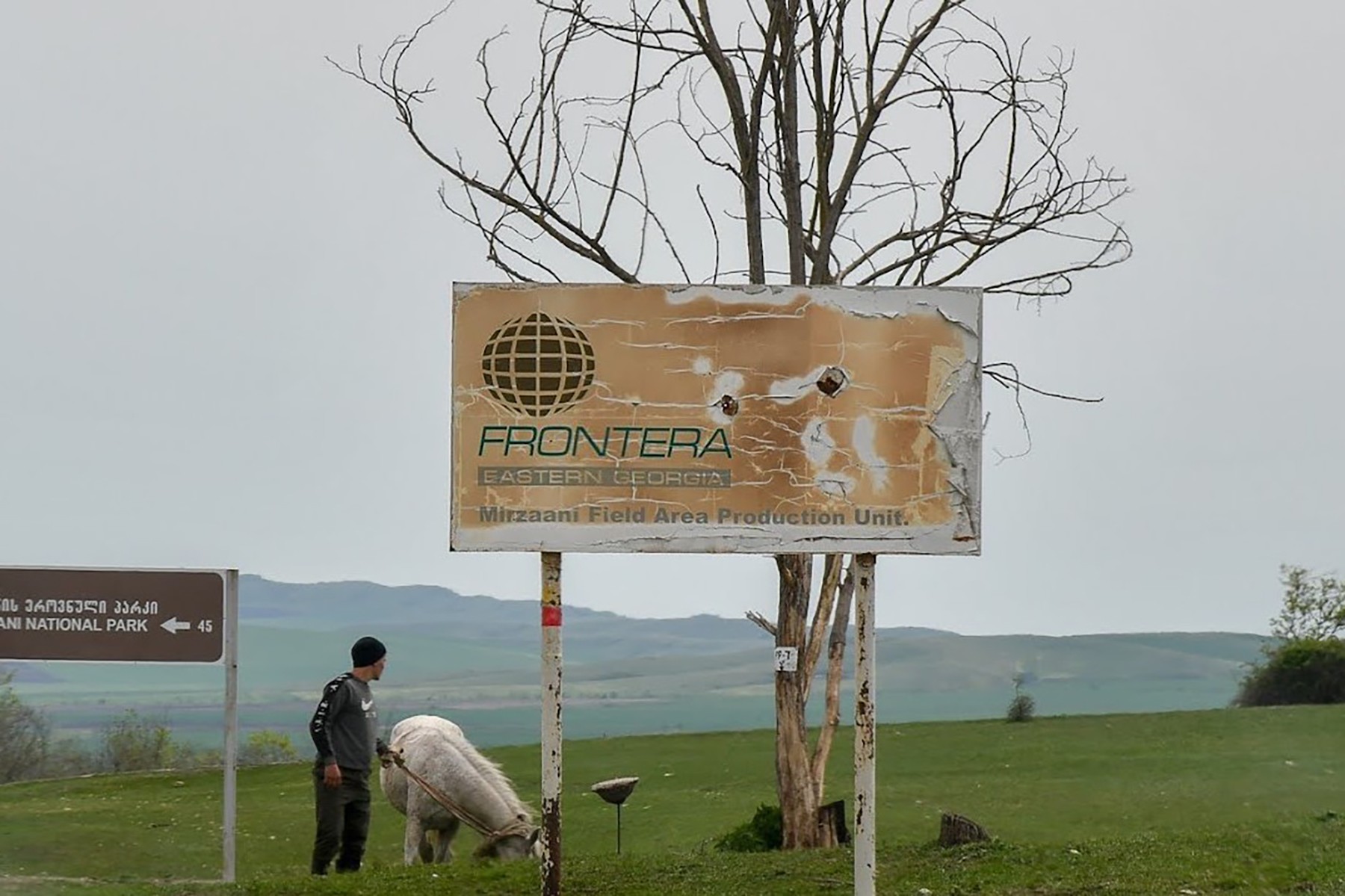
London-listed and US-based oil and gas company Frontera Resources lost its high-profile international arbitration case with Georgia after spending $1m on lobbying fees to pressure the country’s government, openDemocracy and OC Media report today.
The confidential international arbitration decision shows how Frontera misled the public over their high-profile standoff with the Georgian Government.
The dispute between Houston-based Frontera Resources and Georgia’s State Oil and Gas Corporation (GOGC) dominated the country’s headlines in early 2020, after US politicians attempted to intervene in the standoff over allegations that Georgia was ‘expropriating’ a US business.
Frontera had originally promised to help Georgia acquire ‘energy independence’ and high returns for British investors after it claimed to have found 3.8 trillion cubic metres of gas in the east of the country. But a dispute between the company and GOGC over exploration and production territory – including whether Frontera had confirmed viable oil and gas resources – eventually went to arbitration.
Between 2017 and 2020, a number of US Congressmen and Senators sought to pressure Georgia over the Frontera arbitration, drawing on the US’s strategic interests in the country. For the South Caucasus state, US support is vital in defending its interests against Russia, which backs the breakaway territories of Abkhazia and South Ossetia.
Meanwhile, Frontera, which was traded on London’s Alternative Investment Market until it was delisted in 2019, has left former workers unpaid – and shareholders with apparently little recourse to retrieving their investments.
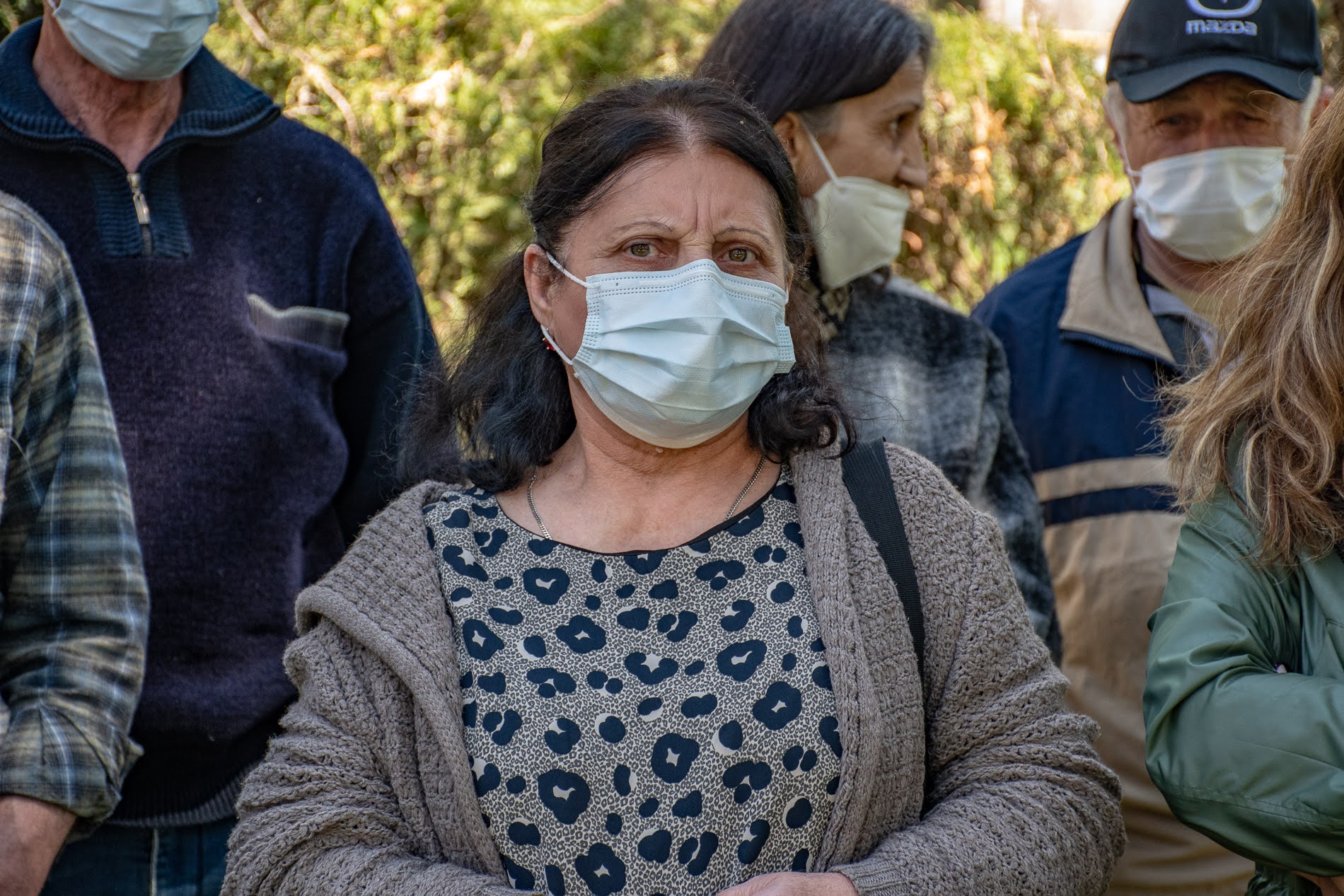
Frontera currently owes $240,000 in unpaid wages to former employees in eastern Georgia, and there are believed to be roughly 200–300 shareholders in the UK whose shares have become worthless since the delisting.
The final arbitration decision was made in April 2020, and both sides claimed victory. Under international arbitration rules, little information is publicly available about the details of the case, including which side won – until it was recently released in a legal dispute between two Frontera executives.
Political connections
Frontera was originally incorporated in 1997 – and aimed to capitalise on new oil and gas opportunities opened up by the fall of the Soviet Union.
The Texas company was founded by a team with strong political connections: Bill White, the former US deputy secretary of energy under Bill Clinton who helped ‘put Caspian oil on Washington’s agenda’, Steve Nicandros, son of a chairman of US oil giant Conoco, and Lan Bentsen, son of former US treasury secretary Lloyd Bentsen.
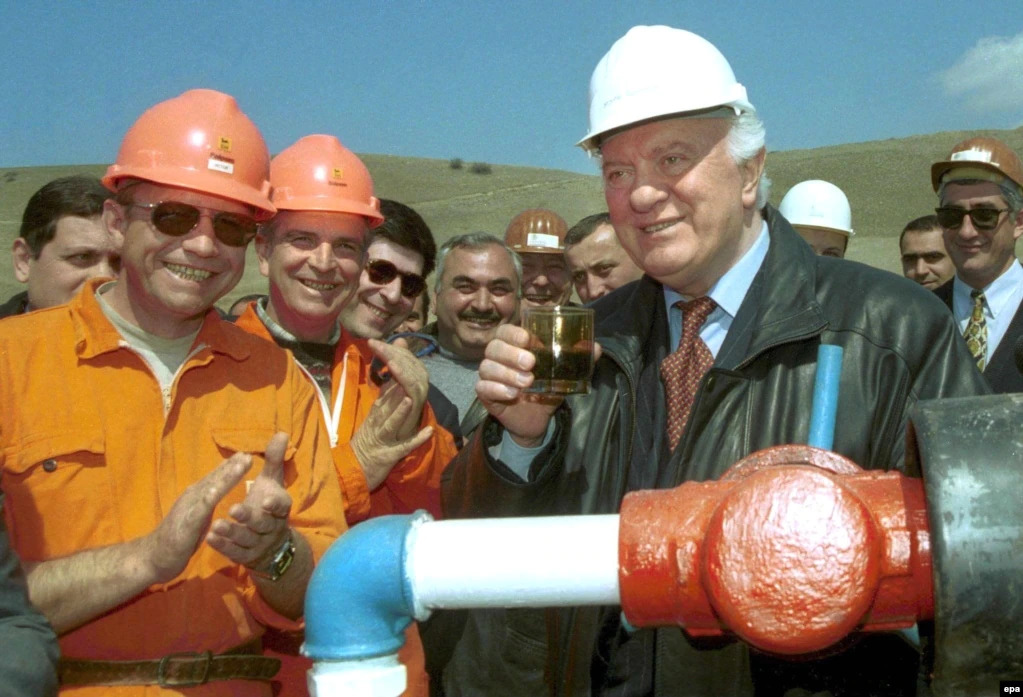
Frontera, which was registered in the Cayman Islands, took early concessions in Georgia and Azerbaijan, and later signed memoranda of understanding in Moldova and Ukraine. In 2005, the company listed on London’s AIM market – noted for its light-touch regulation – where it raised $88m to fund exploration in Georgia. Promising sizable returns for investors off the back of successful development of Block XII, the production and exploration area in Kakheti, in the east of Georgia, the company continued to raise money via AIM until 2019.
‘Our ongoing investments in Georgia have continued to reveal the emergence of what we believe to be a world class gas play with the identification of the South Kakheti Gas Complex’, said Frontera chairman Steve Nicandros in 2015, when the company announced it had found 3.8 trillion cubic metres of gas in eastern Georgia.
‘Much like the recent evolution of similarly prolific gas plays in the United States that have transformed the USA’s energy independence trajectory’, said Nicandros at the time, ‘our results continue to indicate that Georgia has the natural gas resources to follow a similar path’.
But in 2017–2018 Frontera ran into problems in Georgia.
According to the final award, which was submitted by a Frontera executive as part of an employment dispute in Texas in May 2021, the dispute centred on Frontera’s refusal to return Block XII after its production sharing contract – a document which determines the rights and obligations of investors and host states over oil and gas exploration – expired with Georgia’s State Oil and Gas Corporation in November 2017.
To pressure the Georgian government, Frontera drew on its political connections, in particular via chairman Steve Nicandros, a prolific political donor. Between 2017 and 2020, Nicandros spent $182,950 in campaign donations to US Congressmen and Senators.
As previously reported, 16 of these politicians supported draft legislative initiatives or public outreach lobbied on Frontera’s behalf. This lobbying campaign framed the threat to Frontera’s interests as a key part of Georgia’s broader democratic crisis in 2019–2020, and included draft legislation targeting Georgian officials with sanctions over alleged interference in the activities of US businesses. To coordinate this, Frontera spent $850,000 on lobbying fees with Washington public relations firm Cornerstone Government Affairs.
Between 2014 and 2017, the company also donated $359,000 to the Atlantic Council, a powerful US think tank that focuses on energy, politics and security – and where Nicandros and Frontera executive director Zaza Mamulaishvili served on two separate boards for the organisation until 2019, according to a spokesperson for the Atlantic Council.
‘There was a period in early 2020 where almost every week, there were some blackmail stories about Georgia in relation to Frontera, which suggested that the Georgian government “is acting against the Americans” [or] “the country is going backward in its democracy”’, said Vakhtang Charaia, director of the Ivane Javakhishvili Tbilisi State University Center for Analysis and Forecasting.
But the proceedings, the award shows, soon came to focus on whether the company had, in fact, identified and confirmed the sizable resources it claimed.
Frontera did not respond to repeated requests for comment.
Unconventional resources
Publicly, Frontera’s position on the arbitration was confident, stating that the GOGC’s arbitration request was ‘without merit’ – and that it was ‘confident of its standing and complete compliance with the [production-sharing contract]’.
‘Whether it be the Georgian government, a hedge fund, unless we have a very strong case, we don’t make a move’, Zaza Mamulaishvili assured Frontera shareholders in October 2018 in London. ‘Unless we have an extremely strong position, we won’t make a move. Don’t worry.’
But the award itself suggests that Frontera’s position was more fragile, as the tribunal’s findings reveal.
Frontera originally signed a production contract in Georgia in 1997, and after several amendments, its exploration license for Block XII was set to run until 14 November 2017.
By that date, Frontera was meant to produce confirmed evidence of resources and a commercially viable work plan. But by early 2017, there was already a serious dispute between Frontera and GOGC over whether the company had confirmed the resources it claimed according to industry standards and its production contract.
To do so, GOGC requested an ‘independently prepared investment and work plan’ from the company, as well as ‘complete details of all financial resources for undertaking various activities in the five-year period’. The company sent a document in support of this application in January 2017, but GOGC rejected it over the ‘sufficiency of information provided’.
Then, a month later in February 2017, Frontera wrote to the GOGC ‘stating that it had concluded that “commercial production from the Contract Area is feasible”’ according to the production sharing contract, and submitted a study programme.
This declaration, Frontera board chairman Steve Nicandros later said in a press release, was made on the basis of a ‘recently concluded technical analysis’, and ‘represents the results of our extensive historical investment and associated technical work in Block 12’.
Under the production contract, once a declaration of commercial feasibility had been made, Frontera no longer had to relinquish control over Block XII — but GOGC rejected the company’s documents as insufficient under both the production contract and international industry standards.
In response, Frontera stated that Block XII was home to an ‘unconventional resource’ in the form of a basin-centered oil and gas play.
As a result, the company stated, it required additional time than that provided by the contract ‘for more exploration operations, including fracking and drilling, in order to determine the right formula for achieving commerciality in Block XII’.
More pressingly, the company also alleged that GOGC had breached the production contract by obstructing its exploration activities and seeking ‘to undermine [Frontera’s] position in the market’ – and filed a counterclaim for $3.5bn in damages.
The GOGC, however, claimed that prior to the arbitration, Frontera had previously described Block XII as a conventional resource – ‘and that the claim of Block XII as a BCP was developed for the purposes of this arbitration’. To support this, the GOGC noted that the study programme ‘made no reference to Block XII as a BCP, nor was it mentioned in the minutes of the Coordination Committee and technical sub-committee meetings’.
Frontera stated that its log and core data, ‘in addition to comparisons with analogous reservoirs’, was enough to prove its sizable resources and evidence of a basin-centred play in eastern Georgia. But when the arbitration tribunal reviewed the evidence submitted, it found ‘no evidence establishing the existence of such an unconventional resource’, or that Frontera had, in fact, drilled any exploration wells at Block XII.
‘Even in the case of an unconventional resource, industry standards and practice require that a well must first be drilled and data collected therefrom, before a discovery can be achieved’, the tribunal noted.
The final decision stated that Frontera had breached the production contract by failing to return the exploration territories to GOGC, and dismissed the company’s counterclaim, which had been subsequently withdrawn. The tribunal ordered Frontera to return the exploration territories in Block XII, and pay GOGC’s legal costs.
External activities
Aside from the substance of the dispute, it appears that what was happening outside the arbitration was almost as crucial. Throughout the proceedings, Frontera claimed that it had been under pressure from the Georgian government for a number of years — but failed to provide evidence of that pressure.
For example, in September 2019, Frontera wrote to the arbitration tribunal stating that it had ‘reached agreement […] with the Prime Minister of Georgia to suspend the arbitration proceedings in favour of settlement and termination of the arbitration’. The GOGC denied this claim, asserting its sole right to negotiate on behalf of Georgia.
Then, according to the award, Frontera claimed that GOGC had ‘consistently obstructed gas operations, wrongfully issued notices of material breach, sought to undermine [Frontera’s] position in the market […] and failed to enact the tax exemptions contained in the PSC’. Frontera also alleged that its employees, including its senior legal counsel, had been pressured not to participate in the arbitration.
The tribunal stated that the company had not provided ‘sufficient proof for their allegations that the Claimants consistently obstructed their gas operations after 2012’. The tribunal also found that Frontera did not provide evidence that its employees had been pressured, or that GOGC’s actions amounted to a ‘soft expropriation’.
‘The Georgian government and GOGC decided expressly not to hinder Frontera’s operation in Georgia in any way during the arbitration’, said Vazha Khidasheli, a legal and policy adviser to GOGC. ‘We refused to initiate any proceedings in Georgia to intervene in other breaches by Frontera. There is a lot of pollution, environmental breaches, for example, but we decided not to intervene – because of Frontera’s aggressive lobbying campaign.’
During the proceedings, two separate external legal teams resigned from their representation of Frontera – Akin Gump Strauss in June 2019, and Taylor English Duma in September 2019 – and the company’s own in-house counsel also later resigned a few weeks later.
According to the award, Frontera did not attend the final hearing for the arbitration at the International Dispute Resolution Centre in London in December 2019, citing the ‘overall pressures currently placed upon our business as a result of the [Georgian state’s] actions’ – pressures which the tribunal could not confirm evidence of during the proceedings.
Strategic threats
The intrigue, however, did not end with the arbitration award.
While both GOGC and Frontera claimed victory in the aftermath, GOGC moved to terminate its contract with the company — only for the company’s political connections to kick in. Several US Senators and Congressmen publicly claimed that the company was under threat of expropriation and, under pressure from the US, Georgia then revoked the termination of Frontera’s contract, leaving it an existing production area.
As Khidasheli told openDemocracy, this decision came after ‘Frontera instigated criticism from the US’. Leaving Frontera with the production site was a ‘goodwill gesture’, he said, and was designed ‘to avoid a potential threat to the US-Georgia strategic partnership and Georgia’s image as an investment-friendly country’.
Human cost
After promising Georgia its energy independence and high returns for investors, Frontera has since collapsed into an acrimonious lawsuit between its two top executives – and a hostile liquidation process in the Cayman Islands. But beyond the corporate fallout, Frontera has left its former employees and investors in the lurch.
According to former workers of Frontera in eastern Georgia, the company has not yet paid them outstanding salaries (according to their lawsuit, a total of $241,780 between 2016 and 2019), firing them instead in late 2019.
Out of around 100 employees that were fired before 2020, four have died while waiting for their back pay. These include Zaza Tsiklauri, a cancer patient whose family said he needed his wages for his treatment, and Gia Kovziridze, who recently died of a heart attack while facing payments on bank loans without 11 months of wages earned working for Frontera. The court hearing this case has not scheduled a session since November 2019.
Meanwhile, some 200–300 investors in the UK have lost their shares since the company delisted from AIM in January 2019 – leaving many wondering what went wrong with the Frontera dream, and whether they will ever get their money back.
Shota Kincha (OC Media) contributed reporting to this story.



